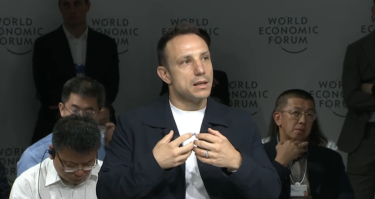Big tech companies are trying to bring back affordable housing in cities like San Jose and San Francisco through multi-million-dollar housing projects, but is it too late for scaling back inequality and gentrification?
The concentration of technology hubs in just five companies in the US with campuses located in only a few cities has proven problematic for the non-tech population.
While big tech companies are trying to improve things by bringing in facilities not just for their employees but the entire community, it remains to be seen if these gestures will bring about real change, including for areas outside America’s tech hubs.
A recent Brookings report reveals that tens of millions of Americans are facing disadvantages in job opportunities, income mobility, and health and happiness levels because they happen to be living in a place other than a ‘superstar’ hub.
Even places like San Jose and Silicon Valley, which are super tech hubs, are racked by problems of extremely high rates of housing costs and homelessness that are caused by a variety of factors.
Recently, the big tech giants have been taking steps to bring up the neighborhood, but the scale of inequality reached by now might be past repair.
Apple breaks ground on $1B campus in Austin, TX to house 5K – 15K employees
What Big Tech is Doing About Housing and Gentrification
In San Jose Google wants to build a campus of more than six million square feet, with, as WSJ says, twice as much office space as the Empire State Building.
They plan for a revamped downtown area around an old train station with thousands of apartments, shops and community spaces.
A new San Jose campus would make Google the top employer in Silicon Valley, with 35,000 employees. This means the company would be ahead of Apple, Facebook, and Cisco.
Two months back, Apple announced construction of a $1 billion campus in Austin, TX, which will employ between 5,000 and 15,000 staff upon completion in 2022. In fact upcoming hubs like Austin are yet to reach skyrocketing prices in real estate.
For example, a one-bedroom in Austin is $1,329 as compared to $4,526 in SF.
Last November, Apple committed $2.5 billion and Facebook committed $1 billion to combat housing crisis in California.
Impact of Tech Hubs on Non-Tech Hubs
Research by Stanford economist Raj Chetty and colleagues shows that neighborhood-level economic inequality has a powerful influence on children’s future prosperity.
This research has shown that where people live—down to the block level—matters deeply in whether they succeed later in life.
That means the problem has been growing in the culture of the area. As Mark Muro, Senior Fellow and Policy Director – Metropolitan Policy Program and Andre Perry, Fellow – Metropolitan Policy Program say,
“Tens of millions of black, brown, and white workers who don’t happen to reside in Seattle or Boston or San Diego are losing out on the income boosts, supply chain advantages, and training and education opportunities that benefit more proximate workers.”
While places like San Jose and Silicon Valley have experienced grave problems that have changed their economic landscape, who is to say that the phenomenon won’t repeat in other cities?
Inequality Caused by Tech Industry
Not just in the US, tech innovation has been found to be a reason for inequality in other countries as well.
The World Social Report 2020, published by the UN Department of Economic and Social Affairs (DESA), shows evidence that tech innovation can lead to increased wage inequality, and displace workers.
Backdrop here is Google's plan to try to add 2 Empire State Buildings worth of office space in San Jose
they're treading lightly and trying to add some housing too pic.twitter.com/TgXRjk7LRa
— Eliot Brown (@eliotwb) January 28, 2020
The report also states that quick development in sectors like biology, genetics, robotics, and AI, are transforming societies at pace.
Highly skilled workers are reaping the benefits of the so-called “fourth industrial revolution” whilst low-skilled and middle-skilled workers involved in routine manual and cognitive tasks, are experiencing a slack in their opportunities.
In the future will tech companies learn from Silicon Valley’s plight and pre-plan the economics of a location before building an empire?
Will future tech companies take care of such problems right from the start?
America is prepping its workforce for industries of the future while trying to reskill its elders












